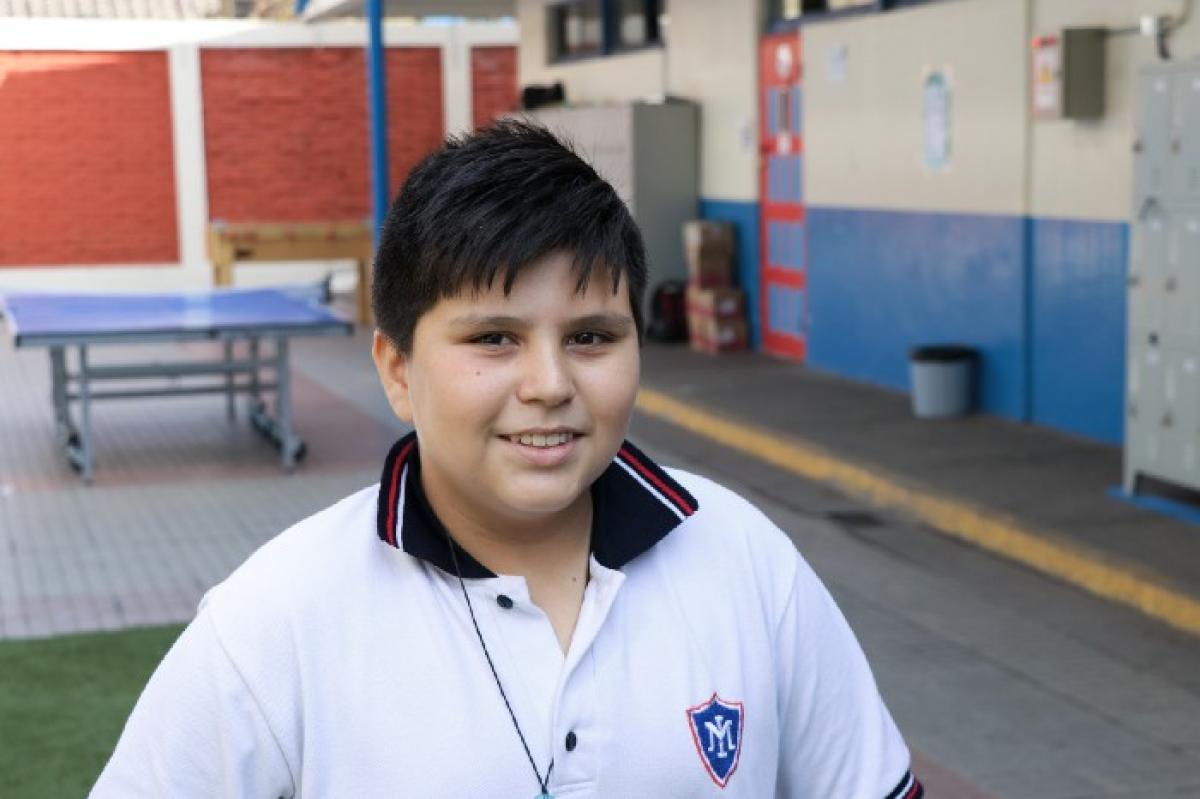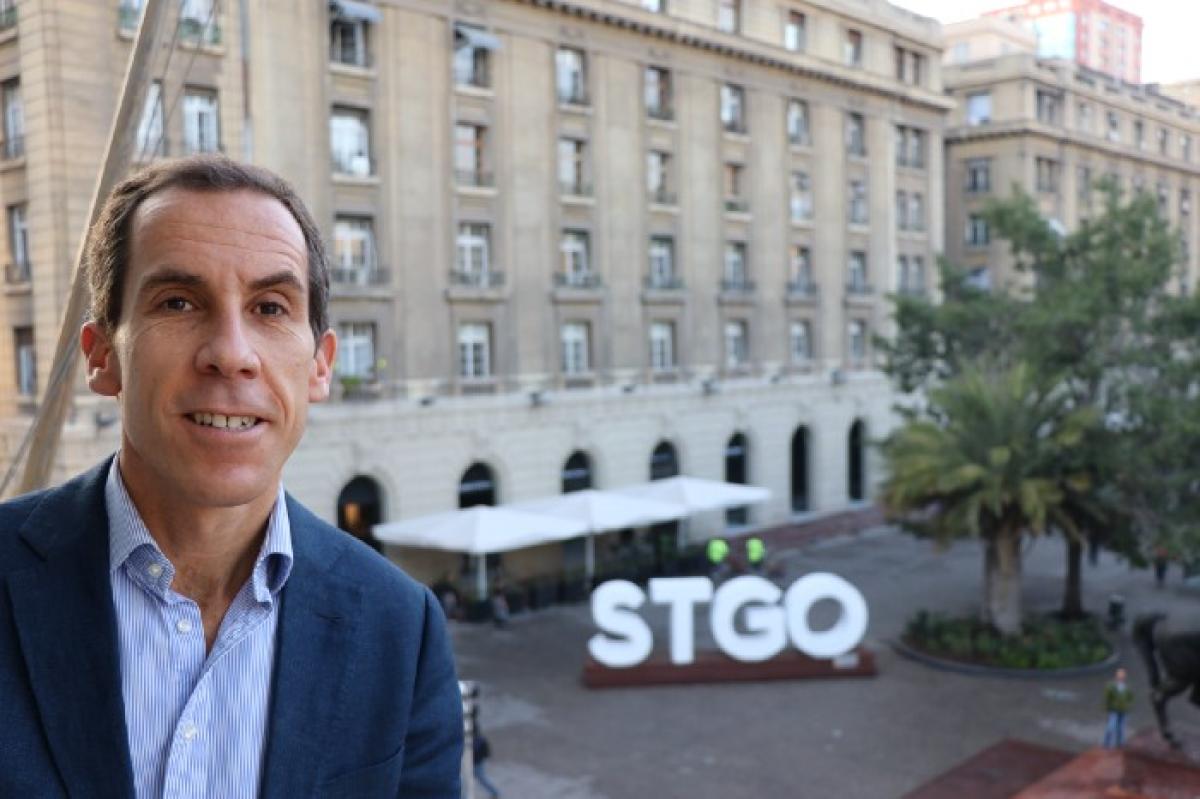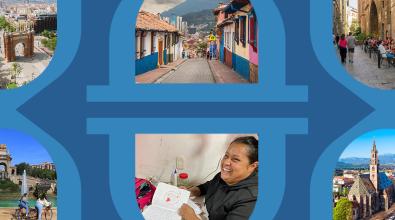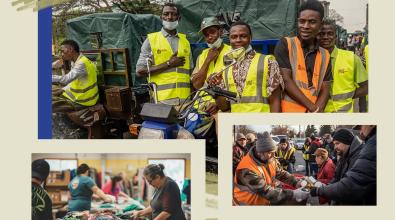Why cities around the world should take notice of Santiago’s fight against childhood obesity

In this first of a summer-long series checking in with the Latin American winners and finalists of the 2016 Mayors Challenge, Bloomberg Cities visits Santiago, Chile, and its Juntos Santiago program, which is tackling childhood obesity.
Para la versión en español, haga click aquí.
Benjamín Morales never minded being called “chubby.” In fact, the 11-year-old from Santiago, Chile, said he kind of likes the nickname. But ever since his participation in Juntos Santiago (Together Santiago) — a first of its kind program to tackle childhood obesity — it’s likely Benjamín’s friends and family are looking for a new nickname.
That’s because, of the thousands of 5th and 6th graders who’ve so far participated in the program — which has created a game of healthier eating and exercise habits — Benjamín walked away with the second-highest score in the city and, most importantly, a lower Body Mass Index and a smaller waist. “When you have to go on a diet, it’s just boring,” he said. “But with the help of Juntos Santiago, it was fun. They made me play games, they made me run, and the contests were fun.”
At the heart of Juntos Santiago, the municipality’s winning idea in Bloomberg Philanthropies’ 2016 Mayors Challenge, is an innovative approach that turns healthy eating and exercise into a game. Kids collect points as they play games like Navegante (where they navigate past obstacles like an island of artificial foods and a chasm of packaged goods), track steps on their pedometers, and join their families at sporting events and healthy activities. Every participant school receives a prize: basketball courts or a climbing wall, for example. And at the end of the year, the schools with the most points win a special prize.
For the kids, it’s just a game. For the city, it’s working wonders. It’s also showing results that could provide solutions for a growing concern worldwide. Later this year, when Juntos Santiago expands to 6,700 students in nearly 50 schools, it will be “the world’s largest intervention to prevent obesity in schools,” according to Dr. Sebastian Peña, a methodological advisor to the program.
“I started to exercise more, I started to get less tired, I started to eat more fruits. In my family, we started eating healthier,” said 11-year-old Antonia González, another of the program’s first-year participants. And, as her father, Henry González, explained, their whole family now has a more balanced diet. “The meals are greener, we drink more water,” he said. “If you have the support and you’re not alone, it’s not difficult to change. It was easy and entertaining at the same time. I wish that all the schools had this opportunity, it would be ideal.”
After the first year, participating schools saw the number of healthy foods students brought to school increase by 24 percent, saw physical activity among students jump by 3.9 percent, and prevented an on-average weight gain of approximately two pounds per student. “It’s a window of hope [and] a good opportunity to educate little ones that, through play, it’s fun to eat healthfully and have a good quality of life,” said Juntos Santiago project manager Macarena Carranza when presenting the results in April.
Childhood obesity “is one of the most serious global public health challenges of the 21st century” because obese children are at higher risk for developing other serious problems, including type-2 diabetes, heart disease, stroke, and cancer, according to the World Health Organization. In the last 40 years, the number of obese children and teenagers saw a 10-fold increase. By 2022, it is estimated that there will be more overweight and obese children and teenagers than underweight ones.
[Read: Success in Santiago’s fight against childhood obesity]
Obesity is the biggest public health problem in Chile, where only a quarter of the population is of healthy weight and more than half of the children are overweight or obese. Yet, according to Santiago Mayor Felipe Alessandri, public policies have done too little to tackle the problem.
Alessandri says the lack of good and safe public spaces, together with the ubiquity of cheap junk food, have conspired to create a sedentary and unhealthy country that is now one of the world’s biggest consumers of soft drinks and bread. Fighting the crisis, he added, will require a coordinated effort. “Schools alone can’t do it, teachers alone can’t do it, parents alone cannot, children alone cannot,” he says. “The most positive thing that Juntos Santiago does is that it involves everyone.”
And now the mayor, who has said that he hopes Juntos Santiago becomes a “national policy” that is exportable to other countries, may be close to seeing that become a reality. Chile’s First Lady, Cecilia Morel has expressed interest in adapting the program into her national anti-obesity campaign.
The children participating in the program might not be fully aware of its citywide magnitude or national potential, but they are seeing its personal benefits. Eleven-year-old Benjamín Morales says he’s stopped bringing juices (high in sugar) to school and that he now drinks more water. His friends, he notes, are now bringing grapes to school instead of chips. And with family? He is starting to see the ripple effects at home, too. “It’s hard to eat junk food when your son is eating an apple,” he says.
Juan Paullier is an Uruguayan freelance journalist. He worked for the BBC for almost a decade as a correspondent in Mexico, Central America, and Venezuela and also at the London and Miami offices.
Read more stories in this series:
- SANTIAGO: Why cities around the world should take notice of Santiago’s fight against childhood obesity
- ESTACIÓN CENTRAL: How one mayor and his city are tackling the immigration crisis
- ASUNCIÓN: Paraguay’s capital city takes the first steps toward counting — and including — its residents
- CURITIBA: A pioneer in busing, Curitiba now aims to improve transit options for the disabled
- BOGOTÁ: How Bogotá is making kids’ commutes safer, educational — and fun
- MEDELLÍN: How Medellín is breaking the grip of illegal lending
- GUADALAJARA: Guadalajara fights corruption — and changes the way it’s being built — one click at a time
- SÃO PAULO: As Amazon burns, São Paulo pushes sustainable agriculture






